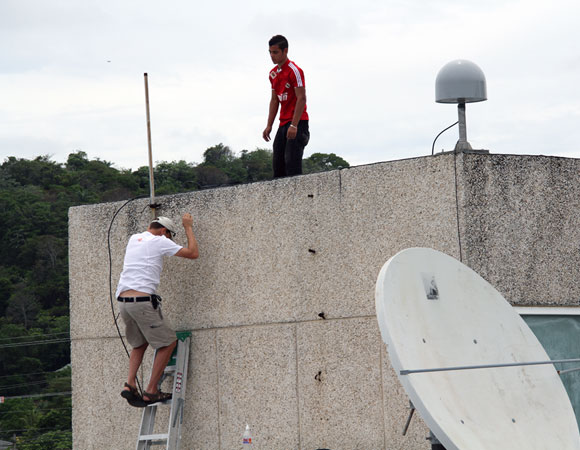
Last climb down the wall. Antenna and met pack installed. Photo provided by Jim Normandeau 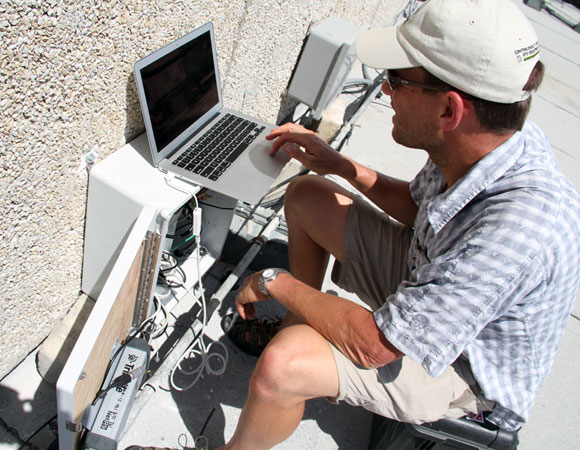
Equipment and battery enclosures mounted to wall. Final programing being completed. Photo provided by Jim Normandeau 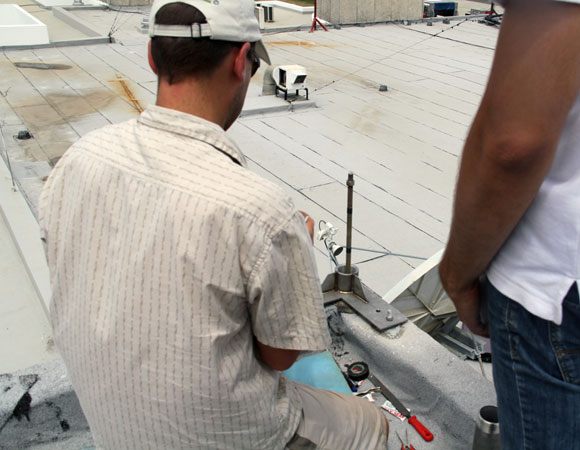
Centering and leveling the new antenna monument. Photo provided by Jim Normandeau 
Guillermo drilling to prepare the new antenna monument. Old antenna monument is shown in the background. Photo provided by Jim Normandeau 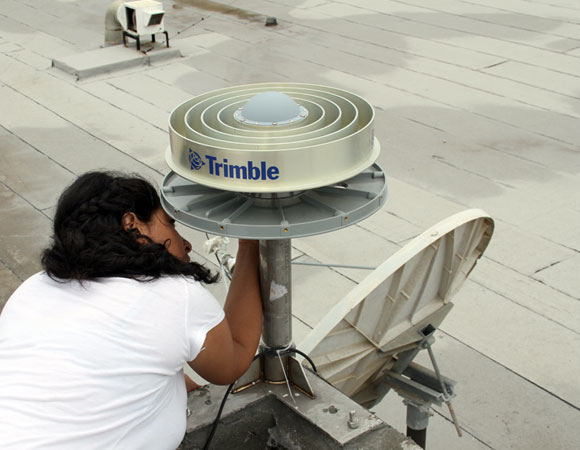
Attaching the security screws for the SCIGN dome. Photo provided by Jim Normandeau 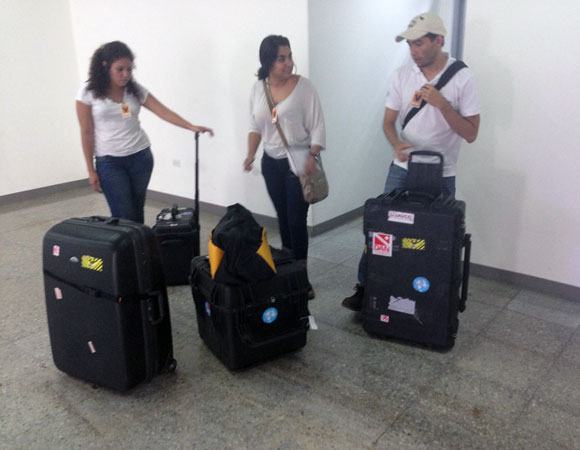
Getting security badges at the Roatan airport. Photo provided by Jim Normandeau.
Project Overview
GPS data continues to provide key clues to the Caribbean region’s geologic faults. GPS stations are currently being installed as part of the Continuously Operating Caribbean GPS Observational Network (COCONet), strengthening the indispensible collection of data belonging to a region that faces many atmospheric and geologic natural hazards.
UNAVCO Connection
With assistance from students Jose Eveline, Guillermo Antonio Lopez, Antonia Sarahi Martinez, and Estefania Kury (all of the Universidad Politécnica de Ingeniería (UPI) Tegucigalpa), Honduras, UNAVCO reestablished a continuous GPS/MET site on the island of Roatan. The original installation was in 2007 as part of the NSF fund project: Improving Hurricane Intensity Forecasts Using Caribbean GPS Stations.
Station upgrades included: choke ring antenna, Trimble NetR9 receiver and Vaisala met pack. The antenna monument was hardened with a newly developed antenna mount that preserves the horizontal position.
Significance
The COCONet project was funded by the National Science Foundation (NSF) with the aim of developing a large-scale geodetic and atmospheric infrastructure in the Caribbean that will form the backbone for a broad range of geoscience and atmospheric investigations and enable research on process-oriented science questions with direct relevance to geohazards. The Caribbean Plate is a unique opportunity to monitor movement, because most of the plate rests underwater. Prior to this endeavor there has been limited monitoring of the Caribbean Plate. Furthermore, each site is equipped with a weather station which records vital atmospheric data that is analyzed by our friends at the University Corporation for Atmospheric Research (UCAR) to monitor the movement of potentially deadly hurricanes.
Project Information
- Principal Investigators: COCONet
- UNAVCO Engineer: Jim Normandeau
- Dates: 26 May – 3 June 2013
- Locations: Site ROA0, Roatan, Honduras
- Funding Source: NSF, COCONet
- Map of Roatán, Honduras
Related Links
Written by:
- Jim Normandeau
- Posted: 16 October 2013
- Last updated: 6 July 2021
- Tags: COCONet, GPS/GNSS, project highlights


